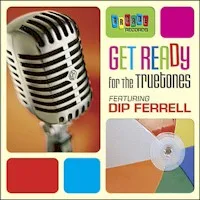Time: 58:54
File: MP3 @ 320K/s
Released: 2011
Styles: Jazz: Hammond Organ
Art: Front
01. What Is This Thing Called Love (6:32)
02. Everything I Love (6:53)
03. I Love You (4:40)
04. Begin The Beguine (7:21)
05. You'd Be So Nice To Come Home To (4:23)
06. Every Time We Say Goodbye (6:01)
07. Rosalie (4:36)
08. Why Can't You Behave? (5:12)
09. Night And Day (5:23)
10. Dream Dancing (7:50)
The release of Gene Ludwig's Love Notes Of Cole Porter is a bittersweet event. While this collection of music shines a spotlight on one of the great, under-recognized organ talents in the world of jazz, it also marks the final recording from this mainstay of the Pittsburgh jazz scene. Ludwig passed away suddenly in the summer of 2010, leaving behind his loving wife Pattye, a rich legacy and solid reputation within the jazz community, and an unreleased collection of Cole Porter tunes from his final recording session, in the fall of 2008.
Now, thanks to Pattye Ludwig's devotion, this music has reached the marketplace, and though she notes that "this CD is a gift back to Gene," it's actually a gift to any true fan of the organ jazz tradition. Ludwig's last recording covers ten Porter tunes, ranging from the oft-covered "Night And Day" to the rarely noticed "Rosalie," and highlights his solid technique and exceptional taste.
The program is split evenly between trio and quartet performances, giving Ludwig an opportunity to shine in two different settings. On the quartet numbers, tenor saxophonist Lou Stellute is often tapped to dish out the melodies, delivering soulful lines on "Why Can't You Behave?" and nonchalant statements on "Everything I Love," but Ludwig is still the star here, delivering his most impressive performances in some unexpected places. Drifting songs, like the aforementioned "Why Can't You Behave?" and the album-closing "Dream Dancing," give Ludwig some space to to open up and deliver some fluid, yet elastic runs that somehow manage to fit perfectly within the mannered pace of these pieces. Ludwig impresses even more when he takes on "Begin The Beguine"—rarely covered anymore and seen as kitsch in some jazz circles—hitting a grand slam with his stellar solo work.
When the organist isn't at center stage, he has no problem supporting Stellute or guitarist Mark Strickland, who serves as Ludwig's traveling companion on all ten numbers, delivering soulful statements and swinging lines in a hip, understated fashion. Hints of Wes Montgomery and Grant Green can be found in Strickland's single note lines, but he takes these influences and fashions them in his own way.
While some may look back fondly and remember Ludwig for his stint with saxophonist Sonny Stitt as the '60s drew to a close, or for his albums on labels both big (Atlantic Records) and small (Blues Leaf), his legacy reaches beyond these mere footnotes in his life. Ludwig was a true gentleman of the jazz organ and a genuine artist to the very end. ~Dan Bilawsky
Personnel: Gene Ludwig: organ; Mark Strickland: guitar; Lou Stellute: tenor saxophone (1-3, 5, 8); Thomas Wendt: drums (1, 3, 5, 7, 9); Billy Kuhn: drums (2, 4, 6, 8, 10).
Now, thanks to Pattye Ludwig's devotion, this music has reached the marketplace, and though she notes that "this CD is a gift back to Gene," it's actually a gift to any true fan of the organ jazz tradition. Ludwig's last recording covers ten Porter tunes, ranging from the oft-covered "Night And Day" to the rarely noticed "Rosalie," and highlights his solid technique and exceptional taste.
The program is split evenly between trio and quartet performances, giving Ludwig an opportunity to shine in two different settings. On the quartet numbers, tenor saxophonist Lou Stellute is often tapped to dish out the melodies, delivering soulful lines on "Why Can't You Behave?" and nonchalant statements on "Everything I Love," but Ludwig is still the star here, delivering his most impressive performances in some unexpected places. Drifting songs, like the aforementioned "Why Can't You Behave?" and the album-closing "Dream Dancing," give Ludwig some space to to open up and deliver some fluid, yet elastic runs that somehow manage to fit perfectly within the mannered pace of these pieces. Ludwig impresses even more when he takes on "Begin The Beguine"—rarely covered anymore and seen as kitsch in some jazz circles—hitting a grand slam with his stellar solo work.
When the organist isn't at center stage, he has no problem supporting Stellute or guitarist Mark Strickland, who serves as Ludwig's traveling companion on all ten numbers, delivering soulful statements and swinging lines in a hip, understated fashion. Hints of Wes Montgomery and Grant Green can be found in Strickland's single note lines, but he takes these influences and fashions them in his own way.
While some may look back fondly and remember Ludwig for his stint with saxophonist Sonny Stitt as the '60s drew to a close, or for his albums on labels both big (Atlantic Records) and small (Blues Leaf), his legacy reaches beyond these mere footnotes in his life. Ludwig was a true gentleman of the jazz organ and a genuine artist to the very end. ~Dan Bilawsky
Personnel: Gene Ludwig: organ; Mark Strickland: guitar; Lou Stellute: tenor saxophone (1-3, 5, 8); Thomas Wendt: drums (1, 3, 5, 7, 9); Billy Kuhn: drums (2, 4, 6, 8, 10).
Love Notes Of Cole Porter













